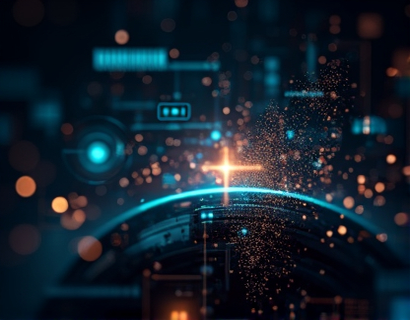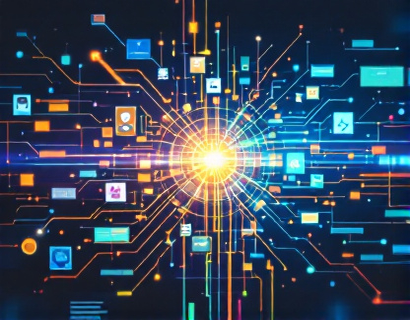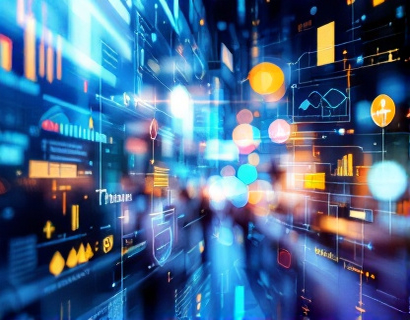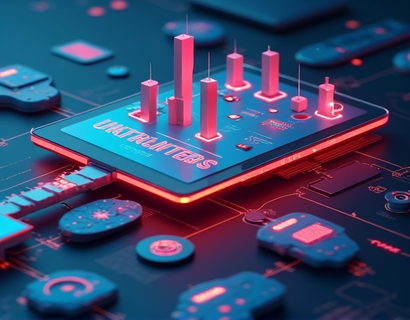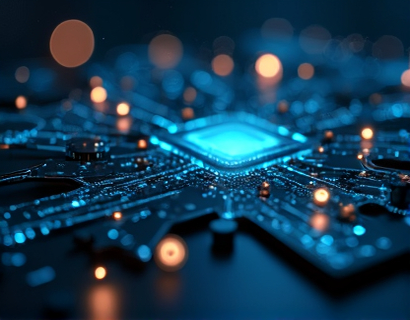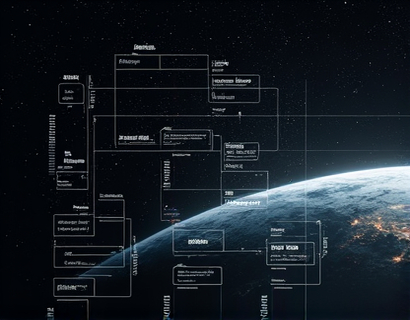AI and Crypto: Catalyzing the Next Wave of Digital Transformation
The intersection of artificial intelligence (AI) and cryptocurrency is giving rise to a new era of digital transformation, one that promises to redefine user interactions and financial empowerment. This synergy is not just a technological curiosity but a powerful force that is reshaping the way we engage with digital services and assets. As we delve into this topic, it's essential to understand the foundational elements that make this convergence possible and the innovative applications that are emerging as a result.
The foundation of this new paradigm lies in the unique properties of blockchain technology, which underpins cryptocurrency. Blockchain's decentralized, transparent, and secure nature provides an ideal environment for AI algorithms to operate. The immutable ledger ensures that data used for training AI models is reliable and tamper-proof, while the decentralized nature of blockchain allows for trustless interactions between parties. This combination creates a robust framework for developing advanced applications that leverage both AI and cryptocurrency.
Enhancing Financial Empowerment
One of the most significant impacts of AI and crypto integration is in the realm of financial empowerment. Traditional financial systems often exclude a large portion of the global population due to high costs, complex regulations, and limited access to banking infrastructure. Cryptocurrency, with its decentralized and borderless nature, offers a more inclusive alternative. AI enhances this by providing sophisticated tools for financial management and decision-making.
For instance, AI-driven financial advisors can analyze vast amounts of market data to offer personalized investment strategies. These advisors can adapt to individual user preferences and risk tolerance levels, providing recommendations that are both data-driven and contextually relevant. Smart contracts, another AI-crypto hybrid, automate and enforce contractual obligations without the need for intermediaries, reducing costs and increasing efficiency. This not only empowers individuals but also small businesses that can now access financial services more easily.
Innovative User Interactions
The integration of AI and crypto is also revolutionizing user interactions with digital services. Traditional user interfaces are being replaced by more intuitive and responsive systems powered by AI. Voice assistants, chatbots, and virtual agents are becoming the norm, offering seamless and natural ways to interact with crypto applications. These AI-powered interfaces can understand and respond to user commands in real-time, making the user experience more fluid and engaging.
Moreover, AI-driven analytics can provide deep insights into user behavior and preferences, enabling developers to create more tailored and user-friendly applications. For example, AI can analyze transaction patterns to suggest optimal times for buying or selling cryptocurrencies, or to identify potential security risks and alert users accordingly. This level of personalization and proactive support is a significant step forward in user engagement.
Technological Integration
The technological integration of AI and crypto is not limited to financial services and user interactions. It extends to various other domains, including supply chain management, healthcare, and entertainment. In supply chain management, AI can optimize logistics and inventory management using blockchain to ensure transparency and traceability. This not only enhances efficiency but also builds trust among all parties involved.
In healthcare, AI-powered diagnostic tools can analyze medical data stored on a blockchain to provide accurate and timely diagnoses. This integration ensures that patient data is secure and accessible only to authorized personnel, while AI algorithms can process complex medical information faster and more accurately than human practitioners alone. The result is improved patient outcomes and more efficient healthcare delivery.
Security and Trust
Security and trust are paramount in both AI and cryptocurrency domains, and their integration offers enhanced solutions. Blockchain's inherent security features, combined with AI's advanced encryption and anomaly detection capabilities, create a formidable defense against cyber threats. AI can monitor blockchain networks in real-time, identifying and mitigating potential security breaches before they occur. This proactive approach to security is crucial in a world where cyber attacks are becoming increasingly sophisticated.
Moreover, the transparency of blockchain ensures that all transactions and interactions are recorded and verifiable. AI can further enhance this by providing auditable and traceable logs, making it easier to track and verify the integrity of data and transactions. This level of transparency builds trust among users and stakeholders, fostering a more secure and reliable digital ecosystem.
Challenges and Considerations
Despite the numerous benefits, the integration of AI and crypto is not without challenges. One of the primary concerns is the regulatory landscape. Both AI and cryptocurrency are still evolving fields, and regulatory frameworks are often lagging behind technological advancements. This can create uncertainty and legal risks for developers and users alike. It is crucial for stakeholders to engage with regulators to establish clear and supportive guidelines that foster innovation while ensuring consumer protection.
Another challenge is the technical complexity involved in integrating AI and blockchain. Developing applications that seamlessly combine these technologies requires expertise in both domains. There is a need for more educational resources and collaborative efforts to bridge the knowledge gap and encourage more professionals to explore this intersection.
Future Prospects
Looking ahead, the future of AI and crypto integration holds immense potential. As technology continues to advance, we can expect even more innovative applications that push the boundaries of what is possible. For instance, the development of decentralized AI markets could allow for the trading of AI models and data, creating a new economy within the crypto space. This could democratize access to AI technologies, enabling more developers and businesses to leverage these powerful tools.
Additionally, the rise of Web3, a decentralized internet powered by blockchain, AI, and other emerging technologies, promises to redefine the web as we know it. In this new paradigm, users will have greater control over their data and digital identities, with AI enhancing the security and functionality of web applications. The synergy between AI and crypto will be at the heart of this transformation, driving a more equitable and efficient digital world.
In conclusion, the convergence of AI and cryptocurrency is not just a technological trend but a transformative force that is reshaping various aspects of our digital lives. From financial empowerment and user interactions to technological integration and security, the possibilities are vast and exciting. As we continue to explore and harness this synergy, we move closer to a future where technology serves us more intelligently and inclusively.









